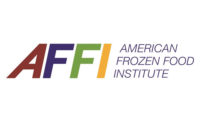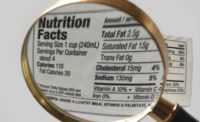The American Frozen Food Institute (AFFI) commented this week following the release of the Scientific Report of the 2025 Dietary Guidelines Advisory Committee (DGAC), reaffirming the need to include frozen food options in nutrition recommendations.
“AFFI commends the DGAC for their hard work in developing this evidence-driven report that will help shape pivotal nutrition programs and guide future government recommendations,” said Alison Bodor, AFFI president and CEO. “Frozen foods can both help address key needs identified by the DGAC to increase produce consumption and take advantage of balanced portions.”
Freezing is nature’s pause button, lowering the temperature on food and locking in the nutrition and flavor. Freezing also prevents spoilage and reduces food waste. Whether farm-fresh produce or just-baked recipes, freezing has significant benefits for consumers.
In its report, the DGAC notes that the consumption of fruits and vegetables is lower than recommended across all life stages. Frozen food makes produce consumption easier for all Americans. Thanks to its longer shelf life and year-round availability, frozen fruits and vegetables can be enjoyed whenever the consumer is ready. Ultimately, people who eat frozen fruits and vegetables eat more total fruits and vegetables than others.
The frozen food category provides a range of additional options that can meet a consumer’s time and cost needs and still support a healthy diet. In a 2023 survey of more than 1,000 people published through Georgetown University, one half of the respondents reported buying single-serve frozen meals because they are a convenient way to eat healthier through portion control. Frozen prepared foods allow consumers to easily and quickly enjoy a meal when they don’t have the time to cook from scratch and still control their energy intake without additional planning or measuring.
These frozen meals are similar to what may be made at home but require less time and fewer prep steps. A review of the nutrition offered by best-selling frozen foods like broccoli with sauce and frozen lasagna reveal they are comparable to home-prepared equivalents for total fat, saturated fat, cholesterol and sodium.
“It is clear that frozen foods can and should be part of future dietary recommendations,” said Bodor. “Whether it’s frozen produce, pre-portioned meals or dishes for family dinner, the frozen food category has quality options that work for all Americans.”
About AFFI
The American Frozen Food Institute is the member-driven national trade association representing all segments of the frozen food supply chain from manufacturers to suppliers and distributors. AFFI advocates before legislative and regulatory entities on the industry’s behalf, serves as the voice for the industry and convenes industry leadership to create an environment where frozen foods are essential in a dynamic marketplace.






